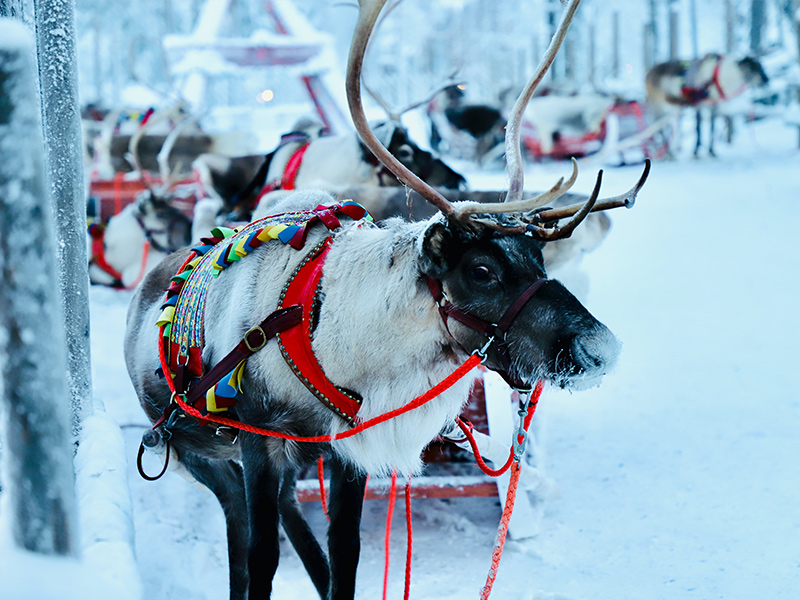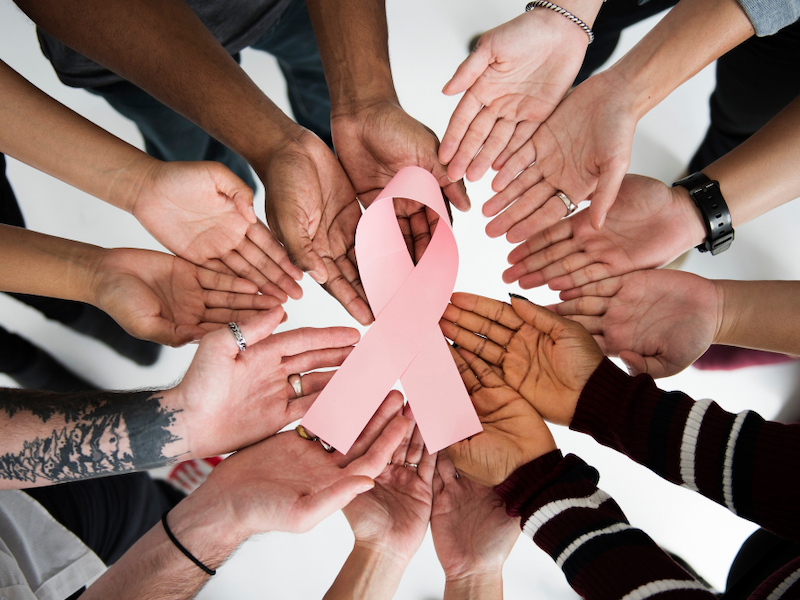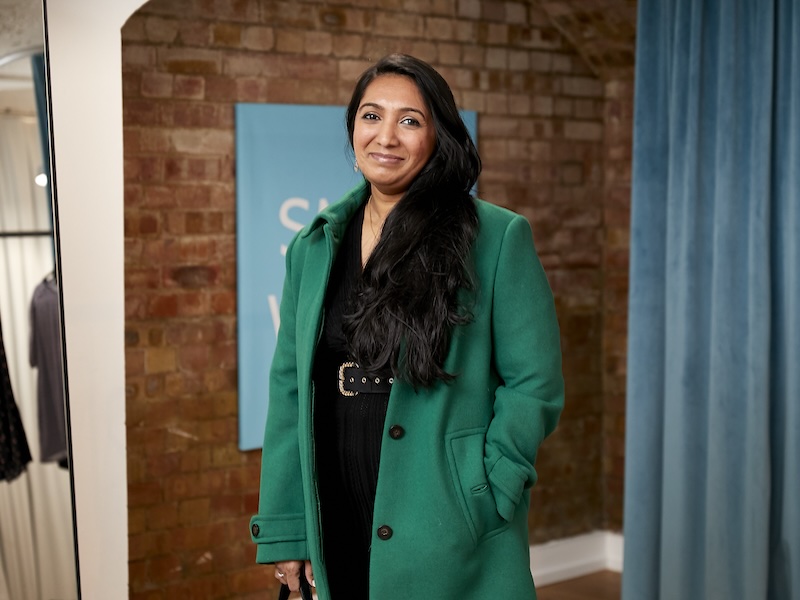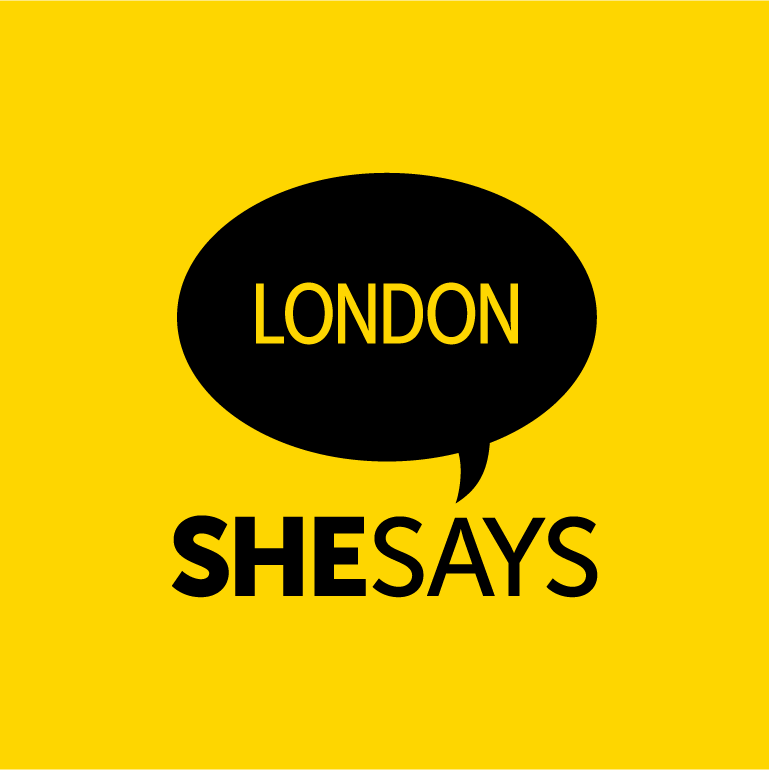Eaves is a charity. We work with women, from the age of 16 onwards, who are vulnerable through homelessness or experiences of violence.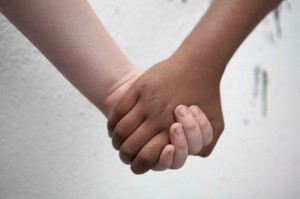
What we do is simple. We empower women to get their lives back.
We find them housing and help them leave situations of violence or exploitation. We help them access counselling, health care and education.
We show them they are important members of society, and help them live healthily, get back to work and improve relationships with friends and family.
Has it happened to someone you know?
Three million women in Britain every year experience rape, domestic violence, stalking or other violence.
This means that you could know a girl or a woman who has experienced violence or sexual violence in her life, whether she has told you about it or not. Could she be a female colleague at work? A friend… your sister… your daughter?
Domestic violence
In two-thirds of domestic violence cases, children witness the violence. These children are more likely to grow up and hit their partners, or become victims of violence themselves, perpetuating cycles of violence and misery.
Sexual violence and young women
37% of all rapes recorded by the police are committed against children under 16 years of age, the majority of whom are girls. (For further information go to page 2).
Prostitution
75% of women in prostitution were pushed into it when they were still children.
Trafficking
When trafficked women are sent back to their countries of origin without any support, they are likely to be trafficked again.
Read on to find out how Eaves is tackling these issues and supporting the women affected by them.
Domestic violence in numbers
One every three minutes = incidents of domestic violence reported to the police.
One in four women in the UK will experience domestic violence in their lifetime.
Two every week = women killed by a male partner or former partner.
3% = proportion of NHS budget spent on treating just the physical health of victims of domestic violence.
4.4% = increase of domestic violence crimes reported in the last year compared to the previous year.
81% = domestic abuse victims whom police estimate they don’t know about.
500 women a year will kill themselves within six months of experiencing domestic violence.
Domestic violence – Laura’s story
“I became pregnant early in my relationship with Dave. After a few months, I saw a different side to him. He would get angry and behave aggressively. When I questioned his behaviour, he would turn on me, shout, and threaten me. It was always such a shock.
“When the baby was due we went out for breakfast. The food was late and Dave became angry, so we left. Driving home, someone cut him up. He chased after the car. When both cars stopped at traffic lights, he got out, went over to the other driver, smashed the window, took his car keys and threw them across the road, screaming abuse.
“That day I went into labour. It was a traumatic birth and I had to have an emergency C-Section. When I got home, I needed care but Dave was too busy playing on his computer. He didn’t attempt to bond with baby Jake; instead he was jealous of him. One day I challenged him. He threatened me with a knife and threw crockery at me. A neighbour called the police and he was arrested. That was when I knew I had to get away. I was still very weak, emotionally and physically, but I left and came to Eaves.”
Eaves’ domestic violence support service, the Serafina Project, arranged for Laura and Jake to be safely rehoused in one of our refuges. Laura was given advice around benefits and resettlement, and counselling sessions to help her get over her experiences.
Laura says, “Now I feel safe. I am able to have stress-free time with my baby and learn to be a proper mother. I’m also a creative person and I’ve started writing again. Who knows, I may write a hit song or a novel! Or, I may retrain as a teacher. The options are all there for me.”
Children who suffer the trauma of living with domestic violence can have difficulty learning and limited social skills, and many suffer from depression or severe anxiety. Some stop speaking altogether.
Sexual violence and young women
It’s a tough world out there for our girls…
37% of all rapes recorded by the police are committed against children under 16 years of age, the majority of whom are girls.
21% of girls aged under 16 experience sexual abuse during childhood.
Of the girls involved in an intimate partner relationship, 3% report experiencing some form of sexual violence, 25% physical violence and 75% emotional violence from their partners.
“I suffer from depression, often resulting in suicidal thoughts and hours walking the streets of London. I’ve also suffered abuse and been raped numerous times. Since becoming a part of the Scarlet Centre, I am receiving counselling, I’ve taken part in workshops such as staying safe, building up my low self esteem, and healthy eating. The continued support from my keyworker and the other staff have been a lifeline for my family and I. Using the computer and photocopier at the centre without added cost has also been a God send.”
Scarlet Centre service user
Put yourself in a young woman’s shoes
As a young woman living in one of our cities’ many run down areas, you endure poverty, poor nutrition, high crime rates and gang violence that dominates your neighbourhood. Your options? You’re in, or you’re in – there’s no choice here.
How we help these young women
Eaves’ Scarlet Centre is the only service in London where women who have experienced any kind of violence can drop in and access so many different services all under one roof.
Workers at the centre provide advice and drop-in support around homelessness, rape or sexual abuse, prostitution or domestic violence – and the consequences of violence, including mental health and/or substance misuse problems.
Women can also take part in weekly workshops on a range of topics, including healthy living, CV writing, personal safety, identifying goals and independent living skills, plus monthly support groups and holistic services such as yoga classes. They can also use the resource area, with computers and up-to-date information on relevant issues including rights, resettlement and education opportunities.
The centre offers specific support for young women aged between the ages of 16-24 and also runs the Amina Scheme, a unique, innovative peer mentoring scheme for women who have experienced sexual violence, run by specially trained women volunteers who have had similar experiences in the past.
Prostitution
Danni’s story
Danni came to Eaves wanting to exit prostitution. She had worked for ten years as a nursery teacher, but the death of a close relative and spiralling debts left her vulnerable.
It was at this point that she was introduced to off-street prostitution.
When Danni arrived at Eaves, she had nowhere to live other than the brothel where she was working, and was earning just £60 for 24-hour shifts. She also had undiagnosed mental health needs, having attempted suicide in the past.
FACT – 74% of women in prostitution identify poverty, and the need to pay household expenses and support their children, as primary motivators for being drawn into prostitution.
Did you know that…
75% of women in prostitution became involved as children.
Up to 70% spent time in care.
45% report experiencing sexual abuse during their childhoods.
85% report experiencing physical abuse during their childhoods.
And things just get worse…
68% of women in prostitution meet the criteria for Post –
Traumatic Stress Disorder (PTSD) on the same scale as victims of torture and war veterans.
73% of women in prostitution suffer sexual assault.
85% have pimps who physically assault them.
95% are addicted to drugs or alcohol, which help to dull the trauma they experience.
But most women want to get out
Nine out of ten surveyed globally said they would exit if they could.
Women involved in prostitution say…
“It’s a vicious cycle of drugs and sex work – but ‘vicious’ doesn’t come close to what it’s like.”
“We know it’s dangerous, but sometimes you’re so desperate for money that you’ll weigh it up but go into the situation anyway”
Sharon from Eaves says…
“When I was doing outreach in Tower Hamlets recently I met women who were selling sex for £7.50. Don’t tell them it’s a glamorous lifestyle.”
Through the Scarlet Centre’s LEA Project, Eaves helped Danni to put together a plan to exit prostitution, but as she was still living and working at the brothel it was almost impossible for her to attend appointments with the GP and at the Job Centre, although these were a crucial part of the support plan. Eventually, with support, Danni was able to organise things so that she could attend the appointments. In the meantime Eaves helped her find somewhere to live, and she started counselling sessions.
As stability and security started to come back into her life, Danni felt ready to begin the difficult process of leaving prostitution, which she has now done.
Eaves works to empower women like Danni so that they can re-build their lives and start again.
Human trafficking is happening right here in Britain
Ana’s story
“When I was 19, my boyfriend, Petras, sold me. Before then I lived with my family in Lithuania. We were poor and when my father was drunk he would beat me and bang my head against the table.
“Petras suggested we move to England to find work. I was so excited! I was in love with him and trusted him completely. I flew alone and met his friend at the airport. He took me to his house, but said I had to work as a prostitute. I was so shocked. I don’t know how many men had sex with me that day, but it was the longest day of my life. After seven months, I managed to run away to a police station, which rang the Poppy Project.
“Being here has helped me start to get my life back. I feel safer and am starting to trust people again. But I will never forget what happened. The bruises on the outside have healed, but the ones on the inside will take much longer.”
Eaves’ Poppy Project created a specialist support package for Ana, including housing, money for food and clothes, and access to counselling, health care, legal advice and English classes. She is gradually overcoming the trauma and coming to terms with what happened to her. She plans to go to university and become a human rights lawyer.
Do you ever wonder how the trafficking of women into prostitution and domestic servitude in the UK affects you?
There is plenty of evidence showing that when trafficking flourishes, all kinds of other organised crime grow with it, including gun crime and child pornography. That’s a lot of crime, in your home town.
Traffickers who bring women in to be exploited are also likely to bring other women, men and children in for illicit activities such as cannabis cultivation, benefit fraud and pick-pocketing.
Have you ever wondered why these women can’t just be sent back home?
Women who are trafficked often come from very poor backgrounds, with limited opportunities for education or employment, and are often sold by friends or family. These women are very likely to be re-trafficked if sent home without the right support. In many countries, there is no support at all for returning victims of trafficking. And in many cases families reject women on their return, because they are seen to have brought shame on the family.
The Poppy Project is run by Eaves. It provides support, accommodation and advocacy for women trafficked into domestic slavery and sexual exploitation in the UK. We have 15 bed spaces throughout England and Wales.
We also run an outreach service which works with women who cannot be housed in Poppy accommodation, because there is no room for her or because she doesn’t meet the criteria for support set by Poppy’s funder, the Office for Criminal Justice Reform.
Who is doing anything about these issues?
Eaves is!
Eaves has more than 30 years experience of supporting vulnerable women and we were the first charity in the UK to take action to help women who have been trafficked.
Eaves’ focus is on helping and empowering vulnerable women: Women who have experienced violence in some form, whether domestic violence, rape or trafficking, and who are at risk of becoming homeless as they lack access to benefits, housing or support networks. Many have children who have been deeply affected by their mother’s – and their own – suffering. This is what makes them the most vulnerable in our society.
Eaves services provide the accommodation, support and training to help them overcome their trauma, fend for themselves, and find jobs so that they can re-enter society, make their own positive contribution and support their children.
Success stories include service users who have gone on to study law and set up their own businesses; one Poppy service user has even become a published author.
What makes us special are our innovative projects run by staff who are extremely passionate about and committed to helping our service users, and our campaigning work which raises awareness about these issues and challenges both people’s attitudes and governmental policy.
Our projects include:
- The Scarlet Centre – advice and support for women who have experienced any kind of violence.
- The Poppy Project – support and accommodation for trafficked women.
- The Serafina Project – support and accommodation for women & children fleeing domestic violence.
- The Amina Scheme – a peer mentoring scheme for women who have experienced sexual violence.
Research, campaigning and lobbying
Eaves’ research and development arm, called the Lilith Project, works to eliminate all aspects of violence against women through campaigning and lobbying for legislative and societal change.
Our knowledge of the issues surrounding violence against women also helps to ensure that the support we offer is at the cutting edge. We also offer training, education and networking opportunities for all agencies working with women, to enable them to keep up to date with new legislation and best practice.
It’s not only women paying the price
In 2007 the Treasury released a report stating that the total cost of violence against women to the economy comes to £40.1 billion per year. This includes the huge cost to employers of sick leave and lowered productivity as a result of experiencing violence, as well as the cost of health services such as the NHS.
Maintaining our services will save you and the economy money, so we all benefit. Click here to find out more and support them
Eaves is a registered charity (number 275048), and a company limited by guarantee (number 1322750).
Registered office Unit 2.03 Canterbury Court, 1-3 Brixton Road, London SW9 6DE, Tel: 020 7735 2062





